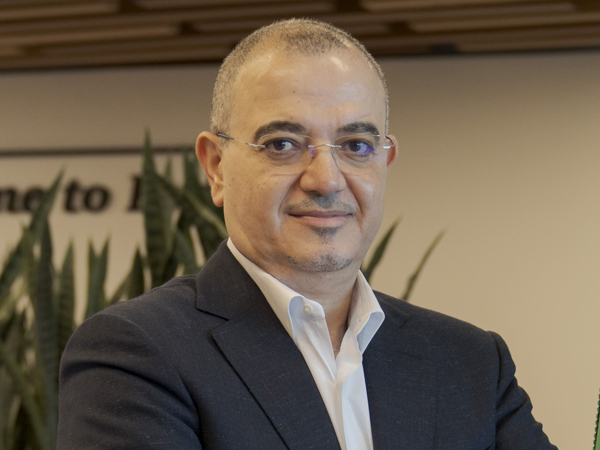
Riyadh Najjar
Saudi CEOS show unprecedented optimism for economic growth
RIYADH, February 28, 2024
CEOs in Saudi Arabia have shown unprecedented optimism on the economic growth prospects of the kingdom in the next 12 months, beating global, regional and its GCC counterparts even as Saudi GDP is forecast to reach $1.3 trillion by 2028.
According to PwC's 27th Annual CEO Survey - KSA findings, a significant 89% of Saudi CEOs, surveyed, are optimistic about the country’s economic growth, compared to 44% globally, 73% in the Middle East and 81% in the GCC.
This unparalleled confidence can be largely attributed to the ambitious goals of Vision 2030, which has paved the way for transformative growth. Halfway through the launch of the economic reform plan in 2016 and its target date, the kingdom has risen in the rankings of global economies to become the 17th largest by size of GDP in 2022.
Saudi GDP at $1trn last year
According to the latest media reports coming in at the time of publishing this report, the kingdom climbed to 16th spot among G20 nations in terms of GDP. Last year, Saudi’s GDP exceeded $1 trillion for the first time and remained above this mark in 2023, with the IMF forecasting growth to $1.3 trillion by 2028.
More than half of the CEOs (54%) are extremely confident in their company's revenue growth for the next 12 months (vs 37% globally) and 40% moderately confident (vs 32% globally). 74% have said that they are likely to increase headcounts, given the massive scale of projects that are underway in Saudi Arabia, the positivity around the economic and financial reforms and initiatives.
Commenting on the findings, Riyadh Al Najjar, PwC Middle East Chairman of the Board & KSA Country Senior Partner, said: “There is no doubt that CEOs in Saudi Arabia have confidence in Vision 2030. It has brought about a massive and fast transformation in the country, leading to strong economic growth. The reforms are aimed at reducing oil dependency, diversifying the economy and increasing competitiveness. Moving ahead, we expect business leaders to continue reinventing their businesses to remain agile and sustainable in the long-term.”
The imperative to evolve
CEOs in Saudi Arabia have expressed the imperative to evolve as they explore growth opportunities, with 49% indicating their company won’t be viable in 10 years if they continue on their current path, similar to the global average of 45%.
Partnerships and alliances
Over the last five years, partnerships and strategic alliances have played a crucial role in helping Saudi Arabia navigate a monumental economic shift. This has resulted in new insights, deepening expertise, and strengthening collaborative innovations. In the same period, 54% of the CEOs indicated that government regulations, and 51% revealed supply chain instability, were the top factors that have influenced changes in how their businesses create, deliver and capture value.
Tech transformation
Saudi CEOs believe that technological change (60% vs 56% globally) and customer preference (69% vs 49% globally) will be the primary factors driving significant changes in their business models over the next three years. However, despite the strong need to embrace emerging technologies, CEOs in the Kingdom are concerned about cyber risks, with 40% indicating they were moderately exposed and 20% highly and extremely exposed to such risks in the next 12 months.
Generative AI
More than half of the CEOs (54%) said GenAI will improve the quality of their companies’ products and services. Looking further ahead, in the next three years, 66% indicated that GenAI will significantly change the creation, delivery and capture of value. In Saudi Arabia, 71% of leaders also anticipate that in the next three years, GenAI will require most of the workforce to develop new skills, while an equal number feel it will increase their efficiency and that of their employees.
Reflecting on GenAI’s potential to reshape business economics, 66% of CEOs in Saudi have revealed that it will increase revenue, while more than half (57%) said it will increase profitability in the next 12 months.
Climate action
Saudi Arabia shows the highest levels of climate concern (29%) when compared to regional (15%) and global (12%) counterparts. 60% of Saudi CEOs said that they are keen to improve energy efficiency of their businesses. More than half are innovating new climate friendly products, services or technologies, while 43% are incorporating climate risk into financial planning.
However, in the last year, 74% of CEOs refused to accept lower returns on climate-friendly investments, while 32% highlighted regulatory complexity and the lack of climate friendly technologies in their sectors as key challenges.
Stephen Anderson, Middle East Strategy Leader at PwC Middle East, added: “Besides the heightened optimism about the future, CEOs in Saudi Arabia also understand the need to evolve to remain agile and viable in the next few years. Strategic partnerships, adoption of technologies, such as GenAI, and a definitive drive to incorporate climate resilience practices in their business models, are all contributing to strengthening their ability to keep pace with rapid transformation.”--TradeArabia News Service







